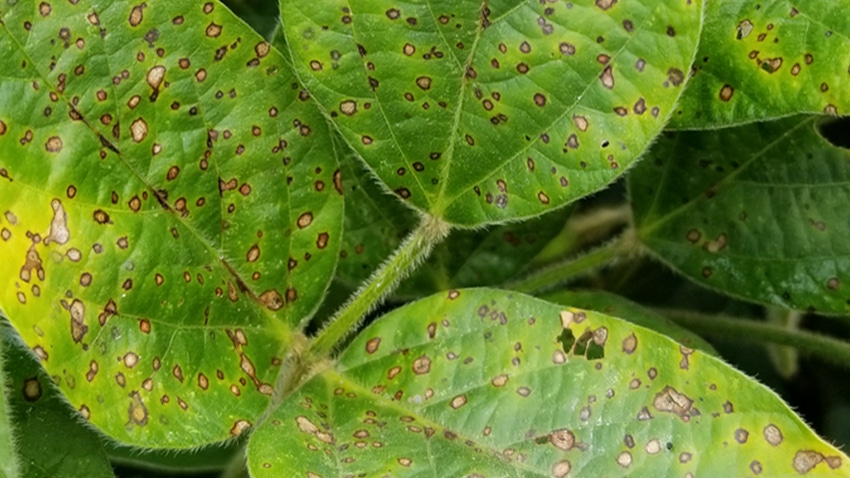
Revylok fungicide is the latest soybean fungicide headed toward the market from BASF. EPA recently registered it, and BASF intends to have Revylok ready for the 2024 season. It brings the active ingredients from two newer fungicides, Revysol and Xemium, together in one product.
Spokespersons say Revylok will offer long-lasting curative and preventive control. Included among its targets for consistent control is frogeye leaf spot, an up-and-coming soybean disease turning heads because it already shows resistance to strobilurin fungicide products. Other diseases on the list include cercospora blight, septoria brown spot and rhizoctonia aerial blight, known as aerial web blight. Visit revylok.com.
More fungicide choices
Simplot Grower Solutions began offering three new fungicides from Innvictis for 2023: Innliven P, Innliven Elite and Innliven TRZ. All three contain pyraclostrobin, which is paired with a different active in each formulation. All three are approved for about 20 crops, including soybeans. They provide preventive care and curative action in a low use-rate product. Visit innvictis.com.
Easier grain management
Greg Trame of GSI suggests trying the company’s new mobile app, GSI Connect. It can put you in touch with your entire grain system and help you optimize the quality of dried grain by reducing chances for spoilage, which is directly linked to safety concerns. Grain entrapment cases were up nationally in 2022 for the first time in years.
GSI Connect lets you access key portable dryer information, Trame says. Drying grain to the proper level matched with intended storage time is key — as is making sure grain is as dry as you think it is. This new mobile app removes guesswork. Visit grainsystems.com.
Novel insecticide
Syngenta’s global launch of Equento insecticide as Equento Extreme in Australia will occur later this year. It contains Plinazolin technology, based on a new mode of action that spokespersons say can break the rise in insect resistance. Target crops include cereals and canola.
Target insects for this seed-applied insecticide include wireworms and red-legged earth mites. Follow Syngenta on Twitter @SyngentaUS.
New carbon product
Biochar is a highly porous, pure form of carbon that stabilizes and sequesters atmospheric carbon for over 1,000 years. VGrid Energy Systems, a California-based clean-energy company, offers micronized biochar in a product called Persist Premium Biochar.
The company is banking on farmers to apply the product through fertigation, drip irrigation and foliar spray systems to enhance soil productivity by retaining water, binding nutrients and supporting beneficial microbial growth. It’s approved for certified organic production. Visit persistproducts.com.
Break down residue
If you want to give crop fields a fast start on breaking down residue, DEI, Westfield, Ind., suggests looking at Reclaim. Spokespersons say Reclaim is tailor-made with the highest concentration of key microbes geared for fast and efficient residue breakdown. The result will be fields that warm up faster for planting. Visit directenterprises.com.
Soybean farmers love cats
A soybean hull-based cat litter reduced dust and odor as well as or better than four commercial biobased cat litters in recent tests. USDA Agricultural Research Service researchers in Peoria, Ill., believe these findings could lead to a home for a huge waste product, plus a better cat litter. The U.S. generates 80 million pounds of soy hulls annually, and cat litter is nearly an $11 billion world market.
About the Author(s)
You May Also Like




